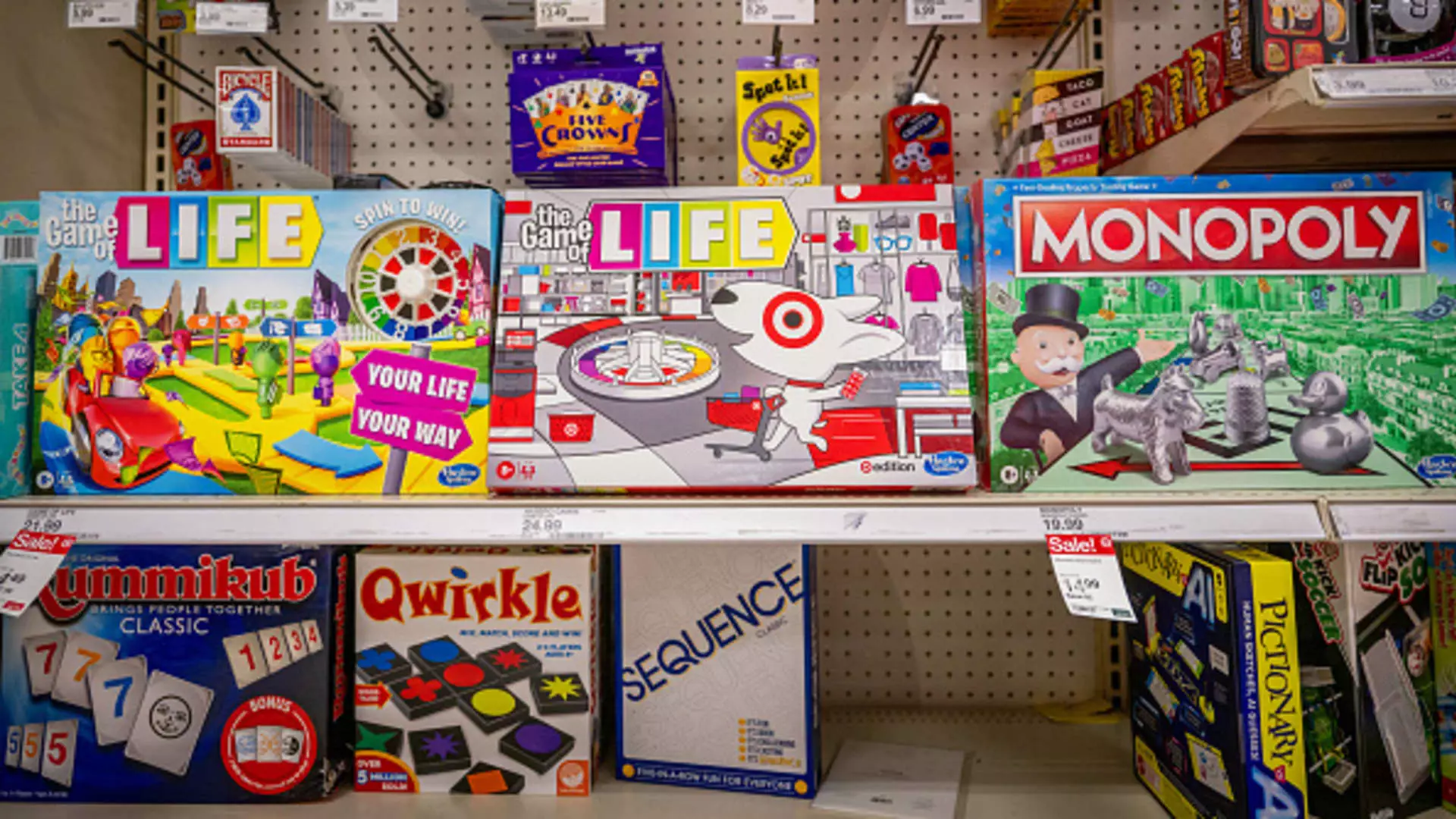When President Trump’s administration unleashed a staggering 145% tariff on imports from China, the repercussions were immediate and severe, sending shockwaves throughout the toy industry. Hasbro, a storied name in toys and games, has been thrust into financial jeopardy, with analysts predicting the potential for a $300 million dive in profits. In an economy that should be thriving on the creativity and imagination of its youth, such a large financial hit is a chilling reminder of how political decisions have real-world consequences, particularly on a company that aims to inspire and entertain. While Hasbro managed to post earnings that exceeded expectations, the looming threat of trade war pricing loomed large in the minds of investors.
Uncertainty: The Greatest Enemy of Innovation
Gina Goetter, Hasbro’s chief financial officer, voiced a complicated forecast riddled with uncertainty, where tariffs could range drastically. This broad spectrum underlines a reality that no business should ever have to face: unpredictability stifles innovation and creativity. The idea that a toy company needs to operate under ominous conjectures of potential 145% tariffs denotes a government environment that is severely hindering its growth. Those contemplating the repercussions of such tariffs do not just consider the bottom line, but also the inherent risks posed to employment and the sustainability of creative business practices. Prolonged tariff conditions essentially become a stranglehold on the free market, creating structural burdens that no amount of strategic flexibility can fully alleviate.
Jobs at Risk: A Human Cost
Underneath the corporate façade of profit and loss stats, it is critical to remember that tariffs can translate into tangible job losses. Chris Cocks, Hasbro’s CEO, explicitly stated the precarious balance the company must maintain between cutting costs and keeping employees onboard. Every financial maneuver to counteract tariff pressures may have repercussions in job security for workers who have dedicated themselves to building products that spark joy for children worldwide. The irony of this is baffling: a policy intended to bolster American manufacturing threatens to lay off workers who contribute to that very idea of American excellence. Hasbro’s adeptness in adapting its U.S. games segment appears commendable, but what of the employees in manufacturing sectors reliant on imports? They are certainly not well served by an environment fraught with volatility.
A False Dichotomy: Cost vs. Quality
The dilemma Cocks grapples with, concerning shifting manufacturing to alternative locations, belies a larger narrative about the cost of moving any production. The reality is that while Turkey might absorb a portion of Hasbro’s manufacturing burden, it remains unfeasible to expect the same quality and pricing structure that has long been nurtured in China. The specialization developed over decades in Chinese manufacturing facilities cannot be replicated overnight. Toy enthusiasts and parents alike deserve high-quality, innovative products that foster imaginative play—not lower-cost alternatives that compromise on fun and functionality. Raising prices to offset these tariffs is a double-edged sword. Families, already managing financial strains, will be pushed further into a corner, forced to sacrifice creativity for affordability.
Hope for Change: The Path Forward
Amid this chaos, the glimmer of optimism lies in Hasbro’s commitment to its $1 billion cost-saving plan. However, one has to question whether such efforts can truly offset the impending pressure of tariffs. The optimism reflected in Cocks’s statements seems more like a plea for a return to a fair-trade landscape rather than an actionable strategy. Consumers and shareholders need not only a “more predictable and favorable U.S. trade policy,” as mentioned by Hasbro executives but actual changes that foster a climate where creativity and innovation can flourish without the constraints imposed by tariffs.
In the end, the toy industry—timelessly tied to the joys of childhood—is facing a dire crisis not of its making. As Hasbro battles against the increasingly burdensome constraints imposed upon it by federal policy, it finds itself at a crossroads between profitability and passion, innovation and uncertainty. It is clear that without a substantial shift in political attitudes towards trade, the toy industry may be irreversibly altered, and not for the better.


Leave a Reply